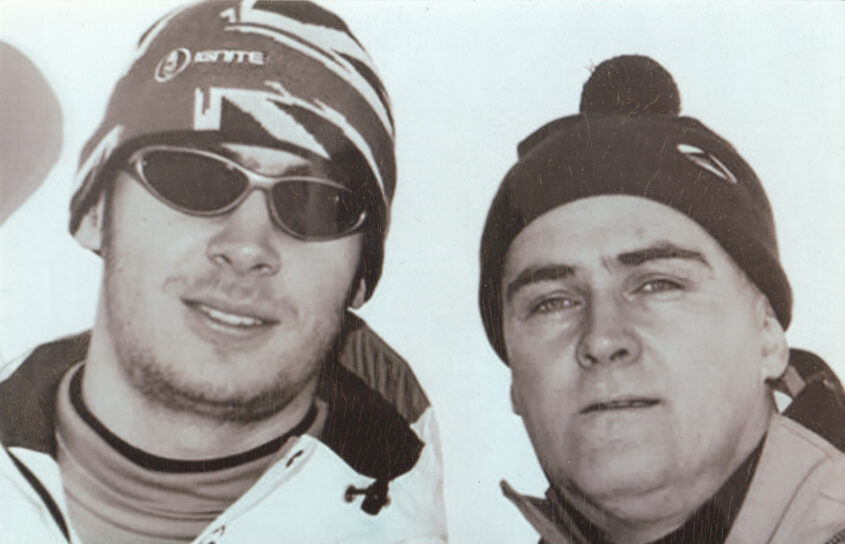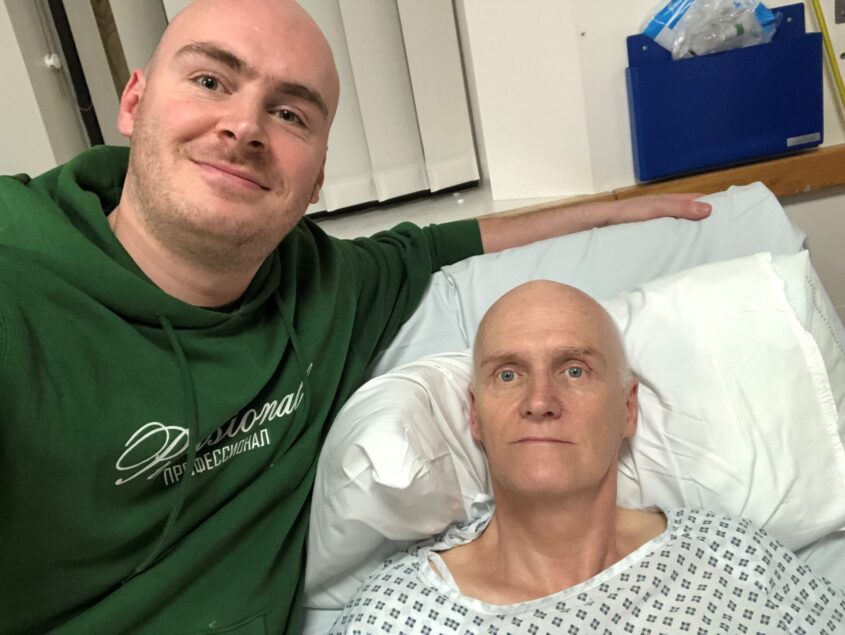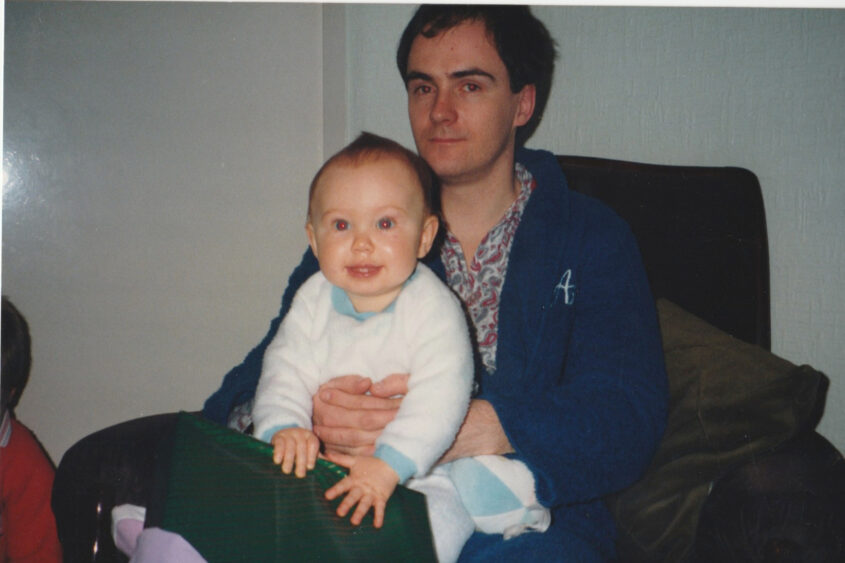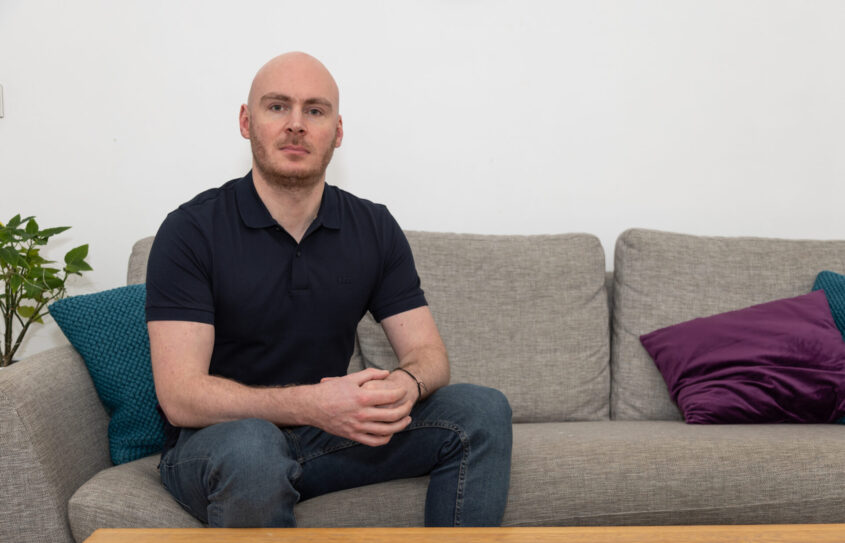50,000 people will die of pancreatic cancer without urgent action from next Government
- We have launched a new ‘Demand Survival Now Campaign’ calling for the disease to be prioritised after decades of neglect
- Number of people dying annually will overtake breast cancer by 2027
At least 50,000 people will die of pancreatic cancer by the end of the next five-year Parliamentary term without urgent action from the next government, we have warned, as our new ‘Demand Survival Now’ campaign launches.
By 2027, pancreatic cancer is projected to kill more people annually than breast cancer, becoming the fourth biggest cause of cancer related death in the UK. This alarming shift is a consequence of 50 years of unacceptably slow progress in improving outcomes for the disease compared to other types of cancer. While the average five-year survival rate for the 20 most common cancers is 52.5%, tragically, less than 7% of people with pancreatic cancer will live for five years after their diagnosis.
Internationally the UK is performing poorly compared to other European countries. For five-year pancreatic cancer survival, the UK currently ranks 15th out of 16 European countries with comparable data – below France, Ireland and Latvia.
To offer hope to the 10,500 people diagnosed with the disease nationally each year and their loved ones, we are calling for the disease to be prioritised for the first time. We are urging major parties to commit to the following in their election manifestos:
- Investing at least £35m a year into pancreatic cancer research to bring about breakthroughs in early diagnosis and new treatments
- Treating pancreatic cancer as an emergency, so everyone can get diagnosed within 21 days
- Doubling the number people getting potentially life-saving surgery, the only curative treatment, within 21 days of diagnosis.
"The chance to deliver the biggest ever improvement in pancreatic cancer is there, if only the next government will grasp it.”
Diana Jupp, CEO of Pancreatic Cancer UK, said: “Generations of politicians, from all political parties, have failed people with pancreatic cancer and their loved ones. This devastating disease has been neglected and underfunded for decades, and without urgent action, it will soon kill more people each year than breast cancer.
“Change is possible, we’ve seen this from other European countries who have access to the same diagnostic tools and treatments as we do but deliver better outcomes for patients. However, the UK is being left behind.
“Whoever wins the General Election has the opportunity to turn the UK into a global leader on pancreatic cancer. To do so they need to commit to making greater, sustained investment in research, and recognise that pancreatic cancer must be treated as an emergency. Speeding up diagnosis so that more people are offered treatment sooner, could potentially double survival and give thousands of others precious extra time.
Currently just 3% of annual UK research spending on cancer is invested in pancreatic cancer. Decades of underfunding by successive governments have stifled progress in delivering earlier diagnosis and, new, more effective treatments. We are calling for investment of at least £35m a year to double survival rates for the disease.
We believe that the dramatic improvement in survival for leukaemia (a type of blood cancer affecting a similar number of people annually) shows what could be possible, through increased and sustained investment in research. Investment in leukaemia grew from £17.6M (2002/03) to £33.6M (2015/16) and has been maintained at that level. In that time survival rates increased by 16%.
As the quickest killing cancer, pancreatic cancer should be treated as an emergency. More than half of people with the disease die within three months of diagnosis. We are calling for people to be able to get a diagnosis within 21 days of being referred for tests to give them the best possible chance of survival.
Pancreatic cancer progresses rapidly and its early symptoms – including persistent indigestion, weight-loss, and back or tummy pain – are common to many much less serious health conditions. Even once it is suspected and a referral is made, the need for multiple tests, and slow processes in decision-making can still mean that a person’s diagnosis often comes too late for either lifesaving or life-extending treatment.
Currently 7 in 10 people with pancreatic cancer receive no treatment at all – not even chemotherapy – meaning the disease has the worst treatment rate of any common cancer (10). Just 10% of people receive surgery, the only potentially curative treatment. People are often waiting too long for treatment to begin because of challenges in coordination between different healthcare teams and significant NHS staff shortages across almost every role connected to cancer. Delays give the disease the opportunity to spread, and for a person’s health to deteriorate, leaving many too unwell for treatment they might otherwise have received.
We believe the existing recommended timeline for treatment to begin within 62 days of diagnosis, is too slow for this rapidly progressing disease. We are calling for political action to speed up the timeframe so that treatment begins within 21 days, which would double the number of people being able to receive treatment. Doing so could potentially double survival rates, as well as give many more people additional precious time with their loved ones and a better quality of life.
Lewis Rogers lost his father, Jeff, to pancreatic cancer in May 2019, just six months after diagnosis. Jeff’s symptoms were initially mistaken for diabetes. It was only after a second visit to the GP, and weeks of waiting for the results from various scans that the cancer discovered. Tragically, Jeff was diagnosed too late to receive lifesaving treatment and never got to enjoy the retirement he had begun looking forward to. He died aged 59.
Lewis Rogers and his late dad, Jeff
Lewis, 39, said: “Dad’s ethos was to make the most of his six months. We are so lucky to have had this time, but it is only six months. That’s the reality. I know many people don’t even get that, but it’s very easy to feel like you’ve been robbed of precious memories. I remember so clearly saying goodbye to him for the last time. He was so weak at that point, so he was asleep. I said goodbye to him, walked out the room and burst into tears.”
“I’m very hopeful that we can improve the future for pancreatic cancer patients, so people don’t have to suffer like my dad did. But we need more than just hope. We need people in power to commit to investment in research. To commit to getting people diagnosed faster, and into treatment quicker. It is entirely achievable. But it requires those in power to pledge to make improving pancreatic cancer survival a priority.”






